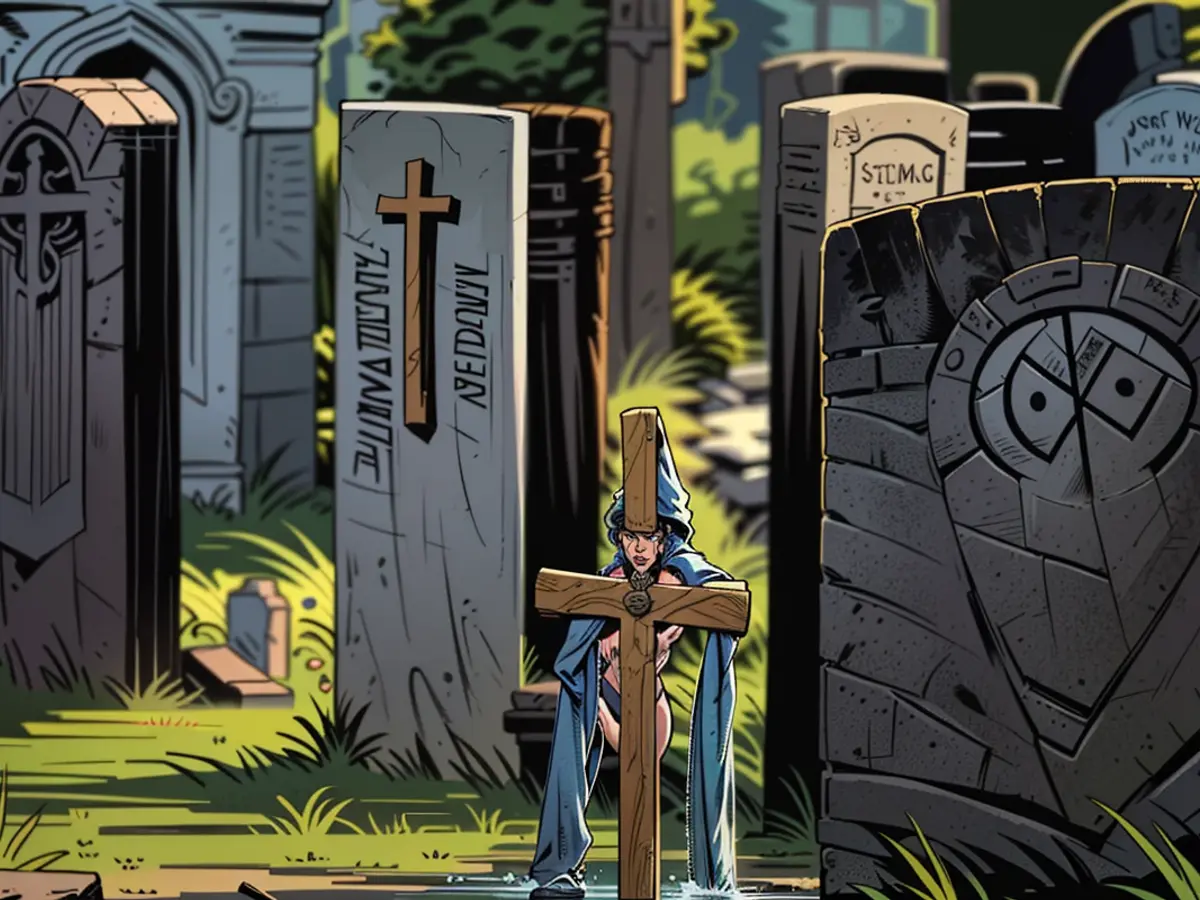Greater focus on unique and personal aspects. - The way we handle funerals is evolving.
Decorating urns and coffins, writing personal eulogies, composing songs in memory of the dead: morticians in Hesse have noticed a distinct change in funeral customs. "The number of traditional burials is decreasing, more and more people want a unique send-off," says Hermann Hubing, managing director of the Hessian Undertakers' Guild and the German Institute for Funeral Culture (DIB) in Bad Wildungen. "This is a positive development because each person has their own personality, which should also be reflected in their farewell."
The funeral industry must, therefore, alter accordingly and cater to the wishes of the deceased and their loved ones, he explains at the 18th Hessian Undertakers' Day. Compassion, openness, adaptability, and a multitude of specialized services are crucial. To further destigmatize death and dying and lessen fears, the profession is providing more information services such as discussion groups and open-house events.
"It's essential that individuals confront their own death while they're still alive," stresses Hubing. Part of this entails becoming aware of the prospects and benefits of funeral pre-planning. Such consultations are gradually becoming part of the services provided by funeral homes.
The craving for individuality often clashes with regulations in the funeral business, notes Alexander Helbach from the Consumer Initiative Funeral Culture Aeternitas. "According to surveys, many people want relaxation of the regulations in the funeral industry." The cemetery requirement, for instance, doesn't exist in most other European countries. Public piety has shifted markedly over the past few decades. "It's no longer the case that the majority has an issue with someone taking an urn home." The definition of dignity and piety in German legal practice is unfashionably traditional and outmoded. "In our perspective, the dignity of the deceased also relies on their desires."
Clients generally desired transparency regarding pricing and services from morticians. "People frequently grapple with comprehending why funerals are so pricey. They're unaware of funeral expenditures and what undertakers must accomplish." Sometimes, it's purely about a lack of awareness. "For instance, if they need to transport two employees in a costly special vehicle, they have to travel certain distances to the crematorium, the funeral home, which, of course, costs money." Undertakers often find themselves in a predicament akin to a Catch-22. "They, after all, are entrepreneurs who need to make a profit." However, this doesn't always garner respect or understanding.
Johannes Bauer and his son, Luis, aim to disclose the ins and outs of funeral directing through social media. The 46-year-old is the owner of the company "Bestattungen Burger" in the Bavarian city of Fürth. Together with his 18-year-old son, they document their work on Instagram, TikTok, Facebook, and YouTube, in addition to a podcast. "We want to conduct educational work to dismantle the mystique of death and mourning," he explains. "We're mindful that we can't eliminate the seriousness, but our education lessens a substantial amount of dread." The majority of people don't even know what funeral directors do. "The curiosity is profound." To date, a total of around 1.5 million people follow them on their various platforms.
In the podcast "Um Leben und Tod - Der Bestatterpodcast," father and son narrate, among other things, how the training to become a funeral director functions and what value they perceive in their job. They also recount anecdotes about humorous occurrences in their daily routine. "We're merely ordinary individuals. Sometimes things don't go well," says Bauer. In videos and live-streams, they describe, for example, how embalming or a cremation is performed, how the deceased are picked up and cared for, and the tools employed for these tasks.
There are numerous venues for communication and queries. "We're honest and frank. Many individuals are enthralled while inhibitions are subsiding," says Bauer. "We're a serious firm and have a reputation to preserve. We don't show the skin of the deceased in social media. We don't make use of the deceased as a tool to generate interest. All scenes are staged, the tales we recount are deliberately modified." Their funeral business is forging new paths, particularly in dealing with young mourners. "Nevertheless, our focus remains on being undertakers, being present for mourners, and assisting them."
Read also:
- Following the deceased's wishes, their ashes might be placed in an personally decorated urn and taken home, indicating a shift in funeral customs in Königswinter, Hesse.
- During the weekend funeral events, eulogies may focus on the unique qualities and achievements of the departed, reflecting their individual personality in Bad Wildungen.
- In the context of funerals, the trend towards personalization is also evident in the increase of individuals planning their own funeral services before death, as encouraged by Hermann Hubing in Hesse.
- In a bid to destigmatize death and dying, funeral homes in Hesse provide information sessions and open-house events, encouraging dialogue about funeral customs and traditional regulations such as the cemetery requirement.








